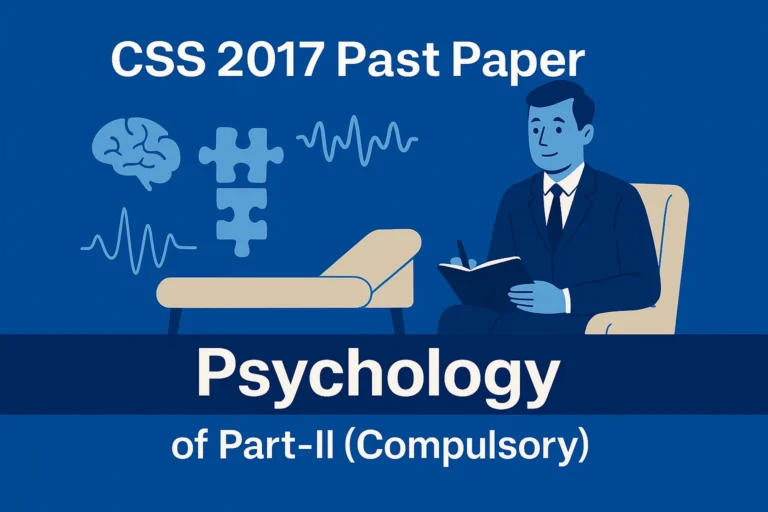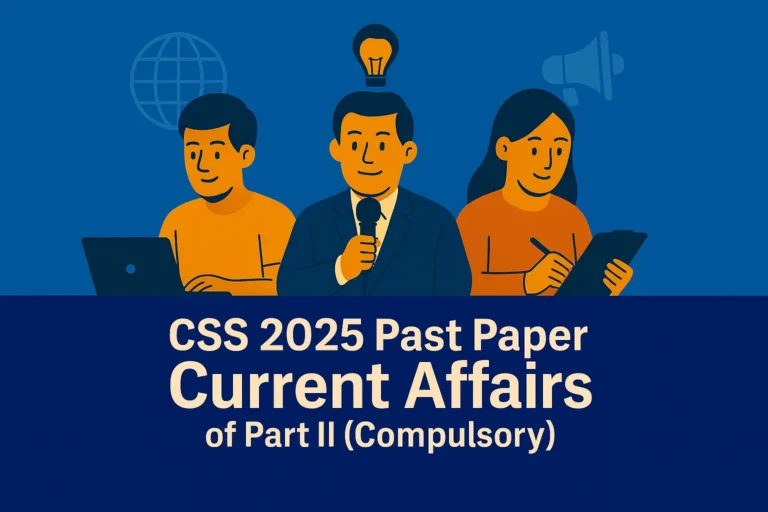Facts About Human Behavior
(CSS Sociology – General Sociology (Bonus Topic) – Facts About Human Behavior)
The study of human behavior involves intertwining elements such as emotions, biology, sociology, and psychology. Mastering the intricacies of behavior improves one’s emotional intelligence and interpersonal relationships. In sociology, understanding behavior helps to explain conformity and deviance, group behavior, and identity dynamics.
1. Self-Esteem and Aggression
Those struggling with low self-esteem frequently express it by attempting to reinforce their ego through the denigration of other people. For instance, heightened national or religious bias is witnessed post-receiving below-average scores on an IQ test. It stems from wanting to project someone’s vulnerable reality onto oneself to feel better about oneself. There is another pattern that is related and involves obtaining satisfaction from viewing anger in other individuals. It is common among dominant males and is quite paradoxically driven by heightened levels of testosterone.
2. Physical Sensations Influence Judgment
Our sense of touch may surprisingly impact social perception. Resumes featured within heavier folders are perceived as more “serious” than identical resumes in lighter folders. The weighty perceptions associated with importance illustrate how our brain symbolically processes physical stimuli.
3. Touch and Temperature Affect Attitude
An individual who becomes stubborn and uncompromising during negotiations likely has a history of sitting on hard chairs. It is diagnosed with neo-orthotic rigid personality syndrome. In the same way, rough surfaces can create loneliness associated with cold feeling surfaces, while warm rough surfaces enhance tangential complexities in interpersonal relationships. Overall, these preliminary studies confirm our hypothesis that the physical environment can elicit and structure emotions alongside social and interpersonal phenomena.
4. Moral Laziness in Indirect Situations
Too many people become morally neutral when faced with a novel task requiring visible effort and active rejection, often due to a valence change. Assistive technologies can be ignored without blame, provided there is minimal energy expenditure and no accountability.
5. Accountability Enhances Ethical Behavior
When individuals are required to make moral choices in front of others, they tend to behave more ethically. The presence of observers acts as a deterrent against unethical behavior, reinforcing the role of social approval in guiding conduct.
6. Lying Is Mentally Exhausting
Deception demands greater cognitive effort. A liar has to remember the lie and suppress the truth, which makes it harder for them to perform complex tasks. Hence, liars often use simpler sentences and struggle with multitasking.
7. Surveillance Promotes Better Conduct
People behave more responsibly when they feel watched, even if it’s an illusion. A simple picture of human eyes in a cafeteria encouraged more people to clean up after themselves. It shows the subconscious power of being under perceived observation.
8. Behavior Reshapes Morality
When people lie or betray someone, they often adjust their moral compass to justify their actions. It means behavior doesn’t always follow belief; sometimes beliefs change to support behavior.
9. Appearance Can Be Deceptive
Attractive or honest-looking individuals are often trusted more easily, even when they don’t deserve it. People mistakenly equate appearance with sincerity, highlighting how visual cues usually override logical reasoning.
10. Looks Influence Political Choices
In politics, mature and attractive candidates tend to receive more votes, regardless of their qualifications. Voters unconsciously equate physical appeal with competence, showing how superficial traits can affect serious decisions.
11. Success Creates Perceptions of Intelligence
Successful and wealthy individuals are generally assumed to be more intelligent and deserving, while those who fail are often seen as lacking effort or talent. It is a classic example of the “just-world hypothesis”, where people believe everyone gets what they deserve.
12. Social Comparison Drives Happiness
People are often less concerned with absolute wealth and more concerned with having more than others. This tendency to compare oneself to peers heavily influences self-satisfaction and happiness.
13. Anger Fuels Desire
When an object is associated with angry facial expressions, people tend to want it more. When striving to possess something, anger fuels motivation and increases competitiveness to a level that has never been seen before.
14. Choice Overload Leads to Inaction
In the case of browsing through shopping catalogs online, people tend to run into an overwhelming number of options. Particularly in novel and high-stakes situations, decision paralysis can result from cognitive consequences of evaluation fatigue caused by too many choices presented.
15. Lack of Control Breeds Superstition
Devoid of control, individuals often feel powerless. As a result, attempt to formulate random patterns and conspiracy theories to try to rationalize why things are the way they are. Such reasoning serves as a shield to their actual lack of control over the situation.
16. Regret Over Rushed Decisions
People tend to feel uncomfortable, regardless of the action taken, especially if the outcome seems to have been produced too quickly. The phenomenon of regret that emerges here arises from perceiving a decision that was too prompt.
17. Risk Perception Is Subjective
Even the most confident person can feel anxious facing a crowd. Different types of risks feel weighted in disparate ways and evoke varying responses based on one’s social background, earlier encounters, and internal struggles.
18. Boredom Inspires Altruism
When people are looking for something to do, they often turn to simple, hands-on activities because they are mentally bored. Monotony is more than mind-numbing; at times, it can spark purposeful self-improvement driven by a quiet yet powerful inner purpose.
Conclusion
Perceptions of people and decisions made are influenced and shaped by social stimuli and cognitive reality. The intertwining biological, psychological, and social factors that shape behavior. Acquiring these fundamentals reinforces one’s grasp of social and group psychology and cross-cultural relations.






